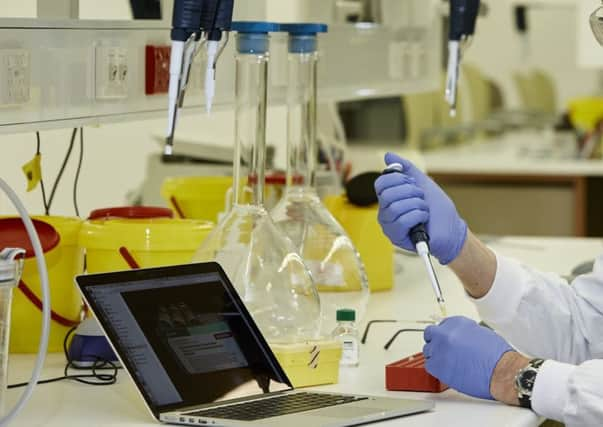It's going to get easier to protect your valuable patents


This month, the Scottish Government published its Legislative Programme for 2016-17 which includes the Expenses and Funding of Civil Litigation Bill. It will introduce measures to make the costs of civil action more predictable, to extend the funding options for pursuers…”
Careful planning from the start can help prevent a court case further down the line. Take a start-up company which has made an invention relating to a technologically simple, generally universal consumer product. The company may be concerned a corporation may quickly copy the invention and flood the market in many countries with products incorporating the invention. What advice would I give to a client like this?
Advertisement
Hide AdAdvertisement
Hide AdA patent is a monopoly right granted on a country-by-country basis. It may be enforced to stop a third party performing infringing activities such as manufacturing, importing or selling an infringing product without the patent owner’s consent.
If a business with a pending patent application notices another party infringing the rights they are applying for, they should consider accelerating the application process to secure the patent(s) in the country concerned as soon as possible.
The deterrent effect on a large corporation of a robust clearly infringed patent should not be underestimated. General Counsel to a large corporation understand the seriousness of the consequences for their corporation if a robust, clearly infringed patent is asserted against them and may prefer to settle, rather than escalate, a dispute. If no settlement is reached it may be necessary to bring an action for patent infringement in the courts.
If the Expenses and Funding of Civil Litigation Bill delivers improved access to litigation in Scotland as intended, it may help reassure SMEs and start-ups they can take on large corporations if they infringe their IP rights in Scotland. In particular, the Bill will include provisions to “introduce sliding caps for success fee agreements in … civil actions and will allow damages-based agreements to be enforceable by solicitors”.
If SMEs and start-ups still consider the cost of litigation prohibitive, before-the-Event (BtE) IP insurance may help.If BtE insurance is not obtained, a “no win no fee” agreement such as a Speculative Fee Arrangement (SFA) or Damages-Based Agreement (DBA) may make it easier for a start-up to bring infringement proceedings in Scotland.
Under an SFA, a claimant is only required to pay a solicitor’s legal fees if litigation is successful. If litigation is successful, an additional success fee is charged as a percentage of the legal fees. The claimant may also purchase After-the-Event (AtE) IP insurance to address the risk of having to pay the other side’s costs in the event of an unfavourable outcome. Under a DBA, a solicitor would not charge a fee if the case is lost, but would charge a proportion of damages recovered in the event of success. Third party funding for litigation may also be considered, such as funding for litigation from a direct competitor of the infringing corporation.
Michael Street is a Chartered and European Patent Attorney at Marks & Clerk